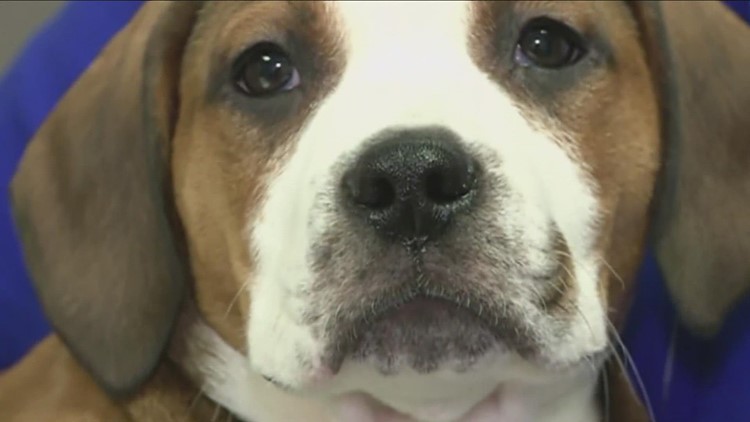ALBANY, N.Y. — Gov. Kathy Hochul on Thursday signed legislation that will ban the sale of certain animals at retail pet stores in the state.
S.1130/A.4283 aims to end the puppy mill-to-pet store pipeline and stop abusive breeders by banning the sale of dogs, cats, and rabbits at retail pet stores. Under the new law, which will take effect in 2024, pet stores will also be allowed to charge shelters rent to use their space for adoptions.
"Dogs, cats and rabbits across New York deserve loving homes and humane treatment," Governor Hochul said. "I'm proud to sign this legislation, which will make meaningful steps to cut down on harsh treatment and protect the welfare of animals across the state."
According to a news release from the governor's office, the law aims to prevent the buying and selling of animals from large-scale, abusive breeders that lack proper veterinary care, food or socialization.
Some animal welfare advocates say it's a blessing to cut off what they call a "puppy pipeline" from disreputable, money-minded breeders using over-bred, sometimes unhealthy parent dogs from out of state puppy mills.
Bethany Kloc of the Erie County SPCA commented about the dogs sold this way.
"Their parents live their entire lives in cages that are just too small and inadequate and dirty, filthy, gross. They don't receive veterinary care at all. It's just completely cruel and inhumane," Kloc said.
But also she made this point: "There are definitely great breeders out there who are doing it for the love of the breed. There are also breeders that are doing it for the love of the money."
2 On Your Side also spoke with David Boelkes, who owns and operates the Barking Boutique in the Buffalo area. We asked where his dogs for sale actually come from.
"Our dogs come from regulated breeders that we actually go and visit ourselves, and we take our staff on kennel tours, and we offer it to customers if they wish," Boelkes said.
Boelkes claims his puppies for sale come from health-vetted dog parents, have a certain stated health guarantee, and may be an option for those who may not want a rescue animal with limited background information available.
"Our business model is to provide families with transparency and sourcing where their dog came from, so they don't have any questions, and to make sure that the adult dogs are tested and vetted thoroughly," Boelkes said.
Boelkes added: "There needs to be regulation in place, not bans. This really just pushes it all to the underground market where, just like the Prohibition Era or anything that goes totally illegal, it just goes down underground into a black market where New Yorkers now only have one option, and that's to go to a rescue, or shelter, or to a personal breeder."
The skeptical SPCA still feels the law has a proper focus.
"Now that New York won't take them as of 2024, hopefully a lot of these puppy- millers will turn to another, hopefully less cruel form of work," Kloc said.
It is not clear if pet store owners, which are mostly in the New York City area, will legally challenge the law as some are still seeking adjustments through sympathetic state legislators.
It also lets existing pet stores rent out space for animal shelters offering animal adoption.



